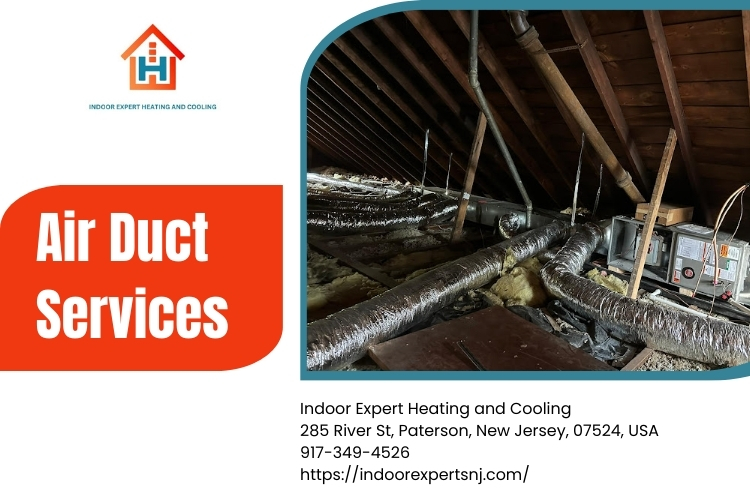" width="560" height="315" frameborder="0" allowfullscreen>
Introduction
Water heaters are essential appliances in our homes, providing the comfort of hot water for showers, dishwashing, and laundry. For residents of Paterson, New Jersey, ensuring that these systems run efficiently and last as long as possible is crucial, especially given the variable climate conditions. This article aims to provide comprehensive insights and practical tips on how to extend the life of your water heater.
Understanding the nuances of water heater maintenance can save you money on boiler repair and replacement down the line. Whether you're dealing with a traditional tank or a modern tankless system, following best practices can make a significant difference.
Let's dive into everything you need to know about prolonging your water heater's lifespan.
How to Extend the Life of Your Water Heater: Tips for Paterson Residents
1. Regular Maintenance Is Key
Why Maintenance Matters
Regular maintenance is fundamental in extending the life of your water heater. Think about it—just like your car needs oil changes and tire rotations, your water heater requires routine checks to function optimally.
Indoor Expert Heating and CoolingWhat Regular Maintenance Entails
- Flushing the tank: Sediment buildup can reduce efficiency. Checking anode rods: These protect against corrosion. Inspecting valves and fittings: Look for leaks or signs of wear.
2. Understanding Your Water Heater Type
Types of Water Heaters
Knowing whether you have a tank or tankless unit will affect maintenance strategies:
- Tank Water Heaters: Typically last 10-15 years. Tankless Water Heaters: Generally last longer but require more specialized care.
Why It Matters
Different systems come with unique challenges. For example, tank systems might need regular flushing more frequently than tankless models.
3. Setting the Right Temperature
Optimal Temperature Settings
Did you know that setting your water heater too high can lead to increased wear? A temperature between 120°F and 140°F is usually ideal.

Benefits of Proper Settings
- Reduces energy consumption Lowers risk of scalding Extends appliance lifespan
4. Insulating Your Water Heater
Why Insulation Is Important
Insulation helps maintain temperature and reduces energy costs. This not only conserves energy but also minimizes strain on your unit.
How to Insulate Properly
Use fiberglass insulation wraps for tanks or foam insulation sleeves for pipes.
5. Checking Pressure Relief Valves
What Are Pressure Relief Valves?
These valves prevent excessive pressure buildup inside your water heater, which can be hazardous if neglected.
How Often Should You Check Them?
Make it a habit to check these valves at least once a year during maintenance checks.
6. Flushing Your Tank Periodically
The Importance of Flushing
Sediment buildup can significantly affect the efficiency and lifespan of your unit.
How Often Should You Flush?
Aim for at least once a year; however, if you have hard water, consider every six months.
7. Monitoring Water Quality
Effects of Hard Water
Hard water contains minerals that can cause scale buildup in your heater—leading to inefficiency and possible damage over time.
Solutions for Hard Water Issues
Consider installing a whole-house water softener or use descaling agents periodically.

8. Keeping an Eye on Anode Rods
What Are Anode Rods?
Anode rods are sacrificial components that attract corrosive elements found in water, thus protecting your main tank from rusting.
When Should They Be Replaced?
Check them every few years; replace when they’re less than half their original size.
9. Avoiding Excessive Use
Understanding Load Limits
Be aware that excessive demand on hot water can put stress on your system leading to potential breakdowns or early failure.
Best Practices for Usage
Spread out heavy usage times throughout the day—this allows recovery time for your unit.
10. Scheduling Professional Inspections
Why Hire Professionals?
While DIY maintenance is beneficial, certain tasks should be left to professionals—especially if you're unsure about what you're doing.
When Should You Schedule Inspections?
At least once every couple of years or sooner if you notice any issues like leaks or unusual noises.
11. Understanding Boiler Repair vs Replacement
What’s the Difference?
Boiler repair involves fixing issues without replacing entire systems; replacement means investing in new equipment altogether.
When To Repair?
If problems are minor like valve replacements or sediment buildup—you may opt for repairs.
When To Replace?
If frequent repairs are needed or age exceeds recommended limits (typically over 15 years), replacement may be more cost-effective long-term.
FAQs
1. How often should I flush my water heater?
You should flush your water heater at least once a year, but if you have hard water, consider doing it every six months.
2. What are signs my water heater needs repair?
Look out for rust-colored water, unusual noises, leaks around the base, or inconsistent temperatures.
3. How can I improve my hot water quality?
Regularly check and replace anode rods and consider installing a whole-house filter system.
4. Why does my hot water run out quickly?
This could indicate a malfunctioning thermostat or sediment buildup affecting capacity.
5. What’s better: tank vs tankless?
Tankless units generally have longer lifespans but require specific maintenance methods.
6. Can I perform all maintenance myself?
While many tasks are DIY-friendly, some—like electrical work—should always involve professionals.
Conclusion
Extending your water heater's life involves regular maintenance, understanding its workings, and being proactive about any issues that arise. For Paterson residents looking to keep their systems running smoothly through changing seasons and demands on hot water usage—these tips provide an excellent roadmap toward longevity and efficiency.
Contact Us
Indoor Expert Heating and Cooling
Address: 285 River St, Paterson, New Jersey, 07524, USA
Phone: 917-349-4526